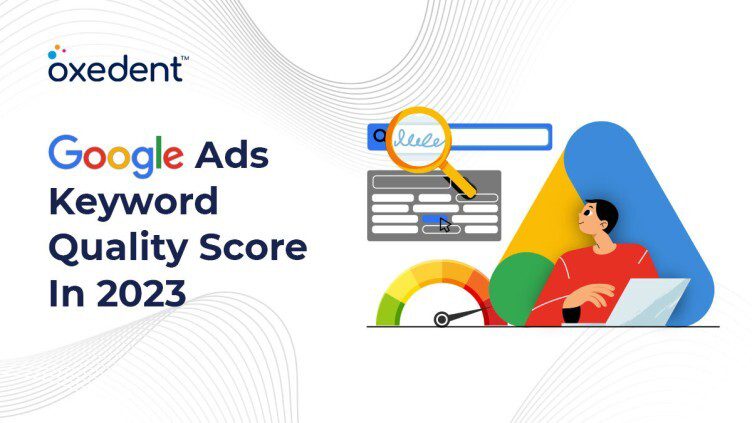Welcome to another edition of Monday Ad-Ventures, where we bring you the latest insights and strategies to help your eCommerce business thrive in the dynamic world of online advertising. Today, we’re taking a step back to focus on the fundamentals and explore the importance of optimizing your Keyword Quality Score in your Google Ads campaigns.
Why Quality Score still matters
In the ever-evolving landscape of Google Ads, it’s crucial to revisit the basics from time to time. Quality Score remains one of the oldest and most significant optimizations for enhancing the performance and efficiency of your campaigns. It serves as a diagnostic tool, offering valuable insights into how the quality of your ads compares to your competitors. Ultimately, Quality Score affects your ad’s eligibility for auctions, cost-per-click, and the way your ad is displayed with various assets like sitelinks.
A higher Quality Score indicates better ad quality according to Google’s rating system, leading to improved performance for your campaigns. While it’s not the sole metric to focus on, it serves as an indicator of your ad’s overall quality in relation to your competitors’.
How it’s calculated
To fully grasp Quality Score, let’s debunk a few misconceptions and understand its calculation based on three components:
- Ad Relevance: The closeness of your ad’s alignment with what your customers are searching for.
- Expected CTR: The likelihood of your ad being clicked when displayed.
- Landing Page Experience: The relevance of your landing page to the ad someone clicked on.
Each component is rated as “Above average,” “Average,” or “Below average,” comparing them to other advertisers whose ads appeared for the same keyword within the last 90 days. If any component receives a “Below average” or “Average” rating, it indicates an area for optimization.
How to optimize Ad Relevance
The key to improving Ad Relevance lies in ensuring your ad closely relates to the keywords within your ad groups. Here are some tips to optimize Ad Relevance:
- Create relevant ad copy: Incorporate keywords into your ad copy, including headlines and descriptions.
- Group keywords into tightly themed ad groups: Structure your ad groups based on related keywords.
- Test dynamic keyword insertion (DKI): Dynamically insert the keyword into your ad copy for increased relevancy.
- Test pinning vs. unpinning headlines with the keyword.
Remember, the primary goal is to ensure your ad remains relevant to the triggering keyword.
How to optimize Landing Page Experience
Optimizing your landing page is crucial to delivering a seamless user experience and matching the user’s search intent. Here are some tips for improving Landing Page Experience:
- Ensure relevance: Align your landing page with the ad copy and the user’s search intent, providing exactly what they’re looking for.
- Use clear and concise headlines, subheadings, and body copy to communicate your product or service’s value proposition and benefits.
- Optimize page speed: Compress images and optimize loading times.
- Ensure mobile-friendliness: Make your landing page responsive to different screen sizes.
- Include a clear call-to-action (CTA) consistent with the ad copy and the user’s search intent.
- Test different landing pages: High bounce rates may indicate users are not finding what they expected.
The goal is to make it easy for your customers to find what they’re looking for and have a positive experience on your landing page.
How to optimize Expected CTR
Although Expected CTR can be challenging to optimize as it relies on historical data, there are strategies you can implement. Consider the following tips:
- Test unique value propositions in your ads.
- Align your ads with the user’s intent.
- Experiment with different ad assets and extensions.
- Test various unique selling propositions (USPs) and CTAs that align with your landing page.
- Utilize psychological buying triggers such as urgency, scarcity, and social proof.
Optimizing Expected CTR is essentially an extension of optimizing Ad Relevance. By continuously refining your ad messaging and aligning it with user intent, you can increase the likelihood of capturing clicks and driving engagement.
Remember, optimizing your Keyword Quality Score is an ongoing process. Regularly monitor your campaigns, analyze performance metrics, and make data-driven adjustments to improve the quality of your ads and maximize results.
At Oxedent, we understand the complexities of Google Ads and the importance of staying ahead in the ever-changing eCommerce landscape. If you need assistance in optimizing your campaigns, maximizing your ROI, and unlocking the full potential of Keyword Quality Score, don’t hesitate to reach out to our team of PPC experts.
Stay tuned for more insights and strategies in our upcoming editions of Monday Ad-Ventures. We’re here to support your eCommerce success.
Wishing you a profitable week!
